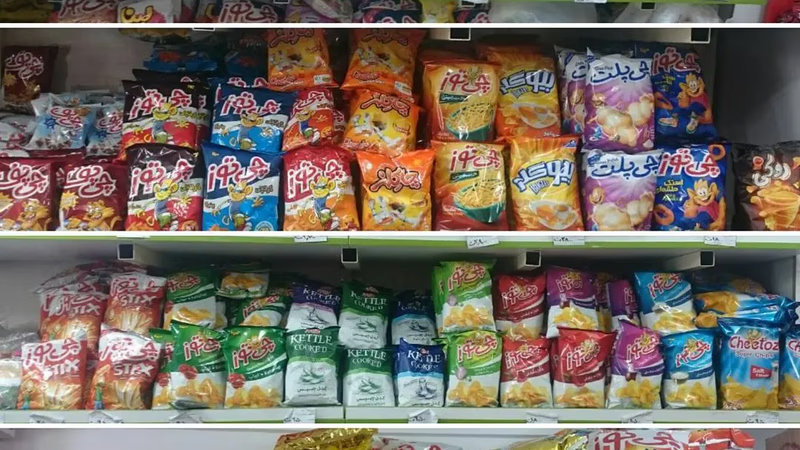
How can B2B platforms enhance snack trade in the Middle East and West Asia?
The snack trade in the Middle East and West Asia represents a dynamic and diversified market driven by changing consumer tastes and robust import-export networks. From nuts, jams, and honey to packaged snacks and dairy-based treats, the region’s growing demand for convenient and quality food items presents lucrative opportunities for exporters and suppliers. Verified importers and exporters on B2B marketplaces in Asia are facilitating smooth transactions, leveraging AI-driven tools for market insights and supply chain optimization. In the tea and coffee segment, Middle Eastern consumers are fueling demand for premium and specialty blends, with West Asia emerging as a hub for trade. Spices, such as saffron, cinnamon, and cardamom, are similarly integral to the region’s cuisine and trade, with suppliers focusing on quality and authenticity to meet market needs. The grocery sector, including dried fruits and canned foods, is witnessing steady growth as urbanization and e-commerce expand purchasing channels. The meat trade, encompassing a variety of sources including poultry, seafood, and halal-certified products, is a key driver of international commodity trade in the region. Similarly, nuts—particularly almonds, pistachios, and walnuts—are highly sought-after for both direct consumption and as ingredients in pastries and confectionery.
For businesses keen to tap into this thriving market, platforms like Aritral simplify the process with features like regional product listings and direct communication tools. Such platforms connect suppliers with buyers across West Asia, offering access to verified partners and streamlined logistics solutions. By capitalizing on the demand for snacks, beverages, and staple ingredients, businesses can unlock significant growth potential in this vibrant region.
-
 Noor Al-Din Aqra 3 months ago
Noor Al-Din Aqra 3 months ago Turkey
Food
Turkey
Food
Very ExcellentDetails
-
 Azita Barfi 3 months ago
Azita Barfi 3 months ago Iran
Nuts and snacks.Dried fruits.Saffron and spices.Various gemstones. Handicrafts.chemical and petrochemicl products
Iran
Nuts and snacks.Dried fruits.Saffron and spices.Various gemstones. Handicrafts.chemical and petrochemicl products
I am here to interact with you in the field of trade. The products i supply include high quality and healthiest materials such as:*Various dried fruit...Details
-
 Cihan Ticaret 3 months ago
Cihan Ticaret 3 months ago Turkey
Construction materials, hand tools, and generators
Turkey
Construction materials, hand tools, and generators
“Your Reliable Address for All Construction Needs! ” Complete your projects with confidence using high-quality construction materials, hand tools, and...Details
-
 Mahyar 3 months ago
Mahyar 3 months ago Iran
Caviar and Food Products
Iran
Caviar and Food Products
Selling first-class caviar Selling original Iranian saffron specifically for export with very high quality Selling various beautiful nuts and dried fr...Details
-
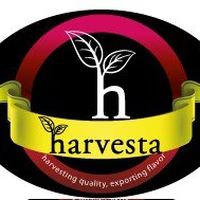 Harvesta Ltd 3 months ago
Harvesta Ltd 3 months ago Iraq
Harvestaltd
Iraq
Harvestaltd
Peace be upon you, our products include fruits, vegetables, fish, shrimp, caviar, canned foods, etc.Details
-
Exploring Middle East Bread and Pastry Trade Opportunities

The bread and pastry market in the Middle East and West Asia represents a dynamic opportunity for businesses to capitalize on the growing demand for baked goods. As urbanization and changing consumer preferences drive interest in artisanal breads, cakes, and biscuits, regional trade platforms are enabling seamless connections between verified exporters and importers. Coupled with expanding markets for complementary goods like tea, coffee, dairy, jams, and honey, baked goods are becoming essential components of grocery and snack product portfolios. B2B marketplaces in Asia are transforming the trade landscape, providing supply chain solutions that enhance efficiency and transparency. Verified exporters can now list diverse products—from croissants and puff pastries to biscuits and bagels—on regional platforms, making it easier for buyers to discover locally relevant offerings. These marketplaces also facilitate direct communication, enabling businesses to navigate import/export regulations and optimize logistics. Additionally, complementary sectors like snacks, spices, nuts, and herbal distillates are closely tied to the bread and pastry trade. The West Asian snack market, for instance, often pairs baked goods with tea, coffee, or nuts.
By leveraging B2B platforms, traders can explore cross-category opportunities, such as marketing pastries alongside premium beverages or dairy products. Market insights reveal that the cake and biscuit market in West Asia is experiencing significant growth due to increased disposable incomes and a preference for convenience foods. Verified suppliers can use trade advertising platforms to highlight product uniqueness—whether through innovative recipes or traditional flavors. This approach not only boosts visibility but also supports regional supply chains by fostering collaboration among producers and distributors. Aritral, an AI-driven B2B platform, simplifies international trade by offering advanced marketing tools, profile management, and streamlined communication. Its intuitive design supports exporters in navigating the complexities of the bread and pastry sector, along with related industries like canned foods and pickles.
-
Exploring the Middle East Canned Food Trade Market

Canned foods are a cornerstone of modern food trade, especially in regions like the Middle East and West Asia where demand for preserved products is steadily rising. These products—ranging from fruits and vegetables to meat, jam, honey, and compotes—are vital for sustaining supply chains that cater to diverse consumer preferences and food security needs. The Middle Eastern international canned and compote market thrives on verified exporters and importers facilitated by B2B marketplaces such as Aritral. These platforms streamline trading by providing regional product listings, market insights, and supply chain solutions, connecting buyers and sellers across borders. Categories such as tea, coffee, snacks, spices, nuts, pickles, and dairy are actively traded, often alongside canned goods. For example, the West Asian snack and spice markets, which frequently pair with tea and coffee, open up significant opportunities for exporters of preserved products. Verified suppliers of preserves and compotes ensure consistent quality and compliance with local tastes and dietary preferences. The canned food sector benefits from the growing emphasis on halal-certified goods, which are particularly pivotal in the Middle Eastern beverage and syrup market.
Additionally, products like herbal distillates, bread, pastries, and dairy often complement canned goods in trade packages, creating diversified offerings for import/export businesses. B2B platforms enhance visibility and provide direct communication channels, which simplify the complex dynamics of international trade. By harnessing AI-driven tools, businesses can leverage market trends, optimize marketing strategies, and negotiate better deals. Aritral, as a trade advertising platform, exemplifies this by connecting suppliers of canned foods and compotes with buyers across the Middle East and West Asia, facilitating seamless transactions and boosting economic growth in the region.
-
Unlocking Grocery Trade in Middle East & West Asia
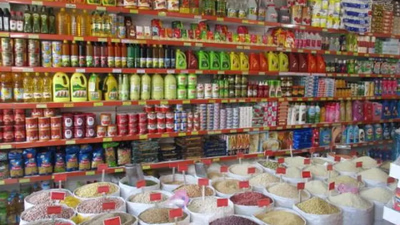
Groceries and dried fruit exports in the Middle East and West Asia are rapidly growing, presenting valuable opportunities for businesses looking to engage in international trade. These markets are renowned for their culinary diversity, encompassing tea, coffee, snacks, spices, meat, jam, honey, canned foods, beverages, nuts, pickles, herbal distillates, bread, pastries, and dairy products. The Middle Eastern dried fruit and grocery market is of particular significance, with products such as dates, figs, and apricots commanding global attention. Supply chain challenges and demand fluctuations influence trade dynamics, but verified exporters and importers on B2B platforms offer robust solutions to streamline operations. Tea and coffee trade trends in this region highlight increasing consumption of premium blends and specialty products. B2B marketplaces enhance visibility and provide direct communication channels for buyers and sellers, enabling growth in these sectors. Similarly, the snack market is thriving, driven by demand for nuts, dairy-based snacks, and spices. Verified exporters are leveraging platforms to connect with regional buyers, ensuring transparency and authenticity in transactions.
Spices, including saffron and cardamom, are staples of Middle Eastern and West Asian cuisine, representing another lucrative trade avenue. B2B platforms are transforming the spice trade by facilitating marketing and expanding global reach. Meat and dairy markets also exhibit robust growth, driven by halal certifications and regional preferences. Pickles, herbal distillates, canned foods, and baked goods are expanding in popularity due to their long shelf life and cultural significance. These commodities are increasingly sourced through trade advertising platforms that offer regional product listings and market insights. Aritral, an AI-driven B2B platform, simplifies international trade for groceries and dried fruits by providing tools like AI-powered marketing and direct communication. Such platforms are critical for overcoming supply chain challenges and fostering business networking in the Middle East and West Asia.
-
Unlocking Herbal Distillate Opportunities in Middle Eastern Trade

The herbal distillate market has emerged as a pivotal segment within the food and beverage trade landscape of the Middle East and West Asia. Herbal distillates, often derived from aromatic and medicinal plants, are essential commodities in these regions due to their applications in traditional medicine, culinary uses, and wellness products. Key players in this market leverage B2B platforms to connect suppliers, exporters, and verified buyers across borders, driving trade efficiency and growth. West Asia and the Middle East are known for their rich heritage in herbal extracts, including rosewater, saffron distillate, and mint-based products. These distillates are in high demand globally, especially in industries such as food, beverages, cosmetics, and pharmaceuticals. Regional marketplaces dominate trade through curated product listings and supply chain solutions. Verified exporters and importers utilize these platforms to access market insights, advertise their offerings, and network with potential buyers. B2B platforms are proving transformative for this sector.
By incorporating AI-driven marketing and profile management services, these platforms streamline international trade dynamics. Traders of herbal distillates, alongside staples like tea, coffee, spices, and snacks, benefit from efficient communication channels and direct sales assistance. Suppliers in West Asia, particularly in countries like Iran, Turkey, and the UAE, have capitalized on their geographic and cultural advantages to expand exports. The herbal distillate market complements broader food categories, including jam, honey, pickles, dairy, and canned foods. As demand for wellness-focused products continues to surge, the trade of herbal distillates is poised for sustained growth. Platforms like Aritral play a supportive role, enabling suppliers and buyers to explore regional opportunities, manage supply chains, and adapt to evolving market conditions efficiently.
-
Exploring Tea and Coffee Trade Opportunities in Middle East & West Asia

The Middle East and West Asia are emerging as vibrant trade hubs for tea and coffee, driven by growing demand for premium beverages and hot drinks. The region’s tea and coffee trade market is bolstered by a robust supply chain network, offering significant opportunities for importers, exporters, and suppliers. With tea varieties like black, green, and herbal teas, and premium coffees gaining popularity, verified exporters and importers are actively leveraging B2B marketplaces across Asia to facilitate seamless cross-border trade. A focus on high-quality products, compliance with halal certifications, and competitive pricing has further enhanced the market’s potential. The broader food sector in the region, including snacks, spices, nuts, and dairy, demonstrates complementary trade growth. Spices such as saffron, cinnamon, and cardamom, along with commodities like nuts, honey, and canned goods, enjoy robust market activities. This integrated trade ecosystem supports both regional and international trade dynamics. For example, the West Asian snack market has seen a surge in demand for diverse offerings, from bread and pastries to pickles and herbal distillates, opening doors for exporters and suppliers to tap into niche markets.
B2B platforms play a transformative role by connecting buyers and sellers, offering market insights, verified supplier profiles, and trade advertising solutions. They simplify the complexities of international trade and improve access to regional product listings. This is especially critical for businesses navigating the challenges of supply chain dynamics and regulatory compliance in tea and coffee trade. Aritral, an AI-driven B2B trade platform, is instrumental in bridging these gaps. With services like product listing, global sales assistance, and AI-powered marketing, it supports businesses in scaling operations and accessing new markets. As demand for beverages, snacks, and groceries continues to grow, leveraging such platforms is key to unlocking trade potential in the Middle East and West Asia.
-
Exploring the Thriving Middle East International Dairy Market

The dairy industry in West Asia and the Middle East is a cornerstone of the region’s food supply chain, driven by robust demand for milk, cheese, yogurt, and other dairy products. The Middle East International Dairy Market is witnessing dynamic growth, supported by regional producers, verified exporters, and importers who cater to the surging consumer needs. Dairy remains a vital component of the food basket, contributing significantly to the nutritional intake of local populations and the income of farmers and ranchers. With trade codes such as 040291, 040310, and 040610 gaining traction, the market reflects a diverse array of products. Verified dairy suppliers in the Middle East and Asia are increasingly utilizing B2B marketplaces and digital trade platforms to expand their reach. This trend facilitates seamless connections between importers and exporters, fostering product visibility and cross-border transactions. Popular dairy products like powdered milk, cheese spreads, and processed butter are especially in demand, with their versatility driving their trade value. The role of supply chain solutions in the dairy trade cannot be overstated.
Many businesses leverage regional product listings and AI-powered tools to identify market opportunities, ensuring the efficient movement of dairy goods from producers to consumers. Additionally, market insights indicate that halal-certified dairy products are gaining prominence, particularly within West Asia’s trade corridors. These insights are shaping strategies for both small-scale farmers and large dairy corporations looking to boost their exports. Aritral, an AI-driven B2B platform, enables players in the dairy industry to list products, connect with verified buyers, and optimize business operations. By combining AI-powered marketing with global sales assistance, platforms like Aritral are revolutionizing the way dairy products are marketed and traded across borders.
-
Unlock Beverage and Food Trade in Middle East & West Asia

The beverage and food trade in the Middle East and West Asia presents vast opportunities for exporters, driven by increasing demand for diverse products like tea, coffee, snacks, spices, halal drinks, and more. These regions boast dynamic markets for Asian beverages and syrups, alongside a growing interest in halal-certified drinks. The Middle East’s consumption of tea and coffee continues to rise, with regional preferences influencing trade trends. Verified exporters, leveraging B2B platforms, play a pivotal role in connecting with importers, ensuring product authenticity and streamlined supply chains. These platforms provide regional product listings, market insights, and direct communication tools, enabling businesses to capitalize on emerging trade opportunities. Snacks and spices also hold significant potential, especially with growing demand for nuts, dried fruits, and dairy-based products. B2B platforms enhance access to reliable suppliers and buyers, fostering growth in these segments. Similarly, the halal drinks market in Middle East countries exhibits robust growth, propelled by cultural preferences and regulatory compliance.
For exporters of jam, honey, canned foods, and herbal distillates, the region offers high-value markets with growing consumer interest in quality and authenticity. Meat and groceries also remain key commodities, emphasizing the importance of efficient supply chain solutions. Verified profiles on trade advertising platforms provide essential transparency, helping businesses navigate the West Asian meat market and the broader food trade landscape. By utilizing AI-driven tools, exporters can identify trends, optimize marketing, and expand their reach in these lucrative markets. Aritral, an AI-powered B2B platform, supports businesses by streamlining the trade process. With services like product listing, global sales assistance, and online marketing, Aritral helps exporters access verified buyers and manage profiles effectively, fostering growth in beverage and food trade across the Middle East and West Asia.
-
Unlocking Jam and Honey Trade in the Middle East & Asia

The Middle East and West Asia are emerging as key players in global trade, particularly in essential commodities like jam and honey. These products, deeply rooted in regional culinary traditions, are gaining traction in international markets due to their natural and high-quality attributes. Verified importers and exporters are capitalizing on B2B platforms to streamline transactions and enhance trade transparency. The Asian jam and honey market is thriving, driven by the demand for premium and organic options, which are particularly appealing to buyers in Europe and the Gulf Cooperation Council (GCC) countries. Moreover, the Middle East and West Asia boast a diverse trade portfolio that includes tea, coffee, snacks, spices, meat, groceries, canned foods, drinks, nuts, pickles, herbal distillates, bread, pastries, and dairy. B2B marketplaces are central to this growth, offering supply chain solutions, regional product listings, and market insights tailored for the region. For example, the rising halal beverage market and the increasing demand for saffron and aromatic spices showcase how targeted trade strategies can unlock opportunities. Similarly, nuts like walnuts, almonds, and pistachios are significant exports, while pickles and herbal distillates find niche markets globally.
Jam and honey stand out as staples in the Middle Eastern and Asian food markets, with honey production particularly flourishing in South West Asia. Countries in the region leverage their favorable agricultural conditions to produce high-quality honey, positioning it as a key export commodity. B2B platforms play a critical role in facilitating this exchange by connecting verified buyers and sellers, providing AI-powered marketing tools, and enhancing supply chain efficiency. Platforms like Aritral simplify international trade with services such as product listings, direct communication, and global sales assistance, ensuring that the jam and honey trade remains a lucrative avenue for businesses. As the Middle East and West Asia continue to expand their international trade footprint, leveraging digital tools and platforms will be pivotal in navigating market trends and meeting global demands effectively.
-
Global Meat and Food Trade in Middle East & West Asia
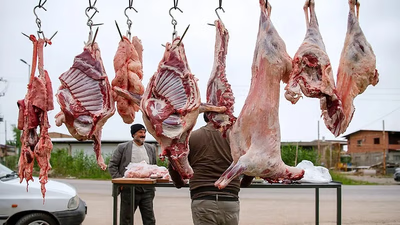
The Middle Eastern and West Asian markets are pivotal for the global trade of meat and other food commodities like tea, coffee, snacks, spices, and dairy. These regions are emerging as significant hubs for both import and export activities, driven by growing demand for diverse food products. The international meat market, in particular, has seen substantial growth, with importers and exporters in the Middle East focusing on all types of meat, including poultry, beef, mutton, and aquatic products. Factors such as increasing population, evolving dietary preferences, and expanding halal meat markets have spurred demand. Verified exporters on B2B platforms are instrumental in bridging supply chain gaps and ensuring reliable trade flows. B2B marketplaces play a transformative role in amplifying trade opportunities across various food sectors. For instance, they facilitate direct communication between buyers and sellers of tea, coffee, snacks, and spices, offering market insights and regional product listings. These platforms enable businesses to capitalize on emerging trends such as the rising popularity of saffron, nuts, and herbal distillates in Middle Eastern diets.
In parallel, canned foods, jams, and pickles are gaining traction, supported by efficient supply chain solutions. The dairy sector is also thriving, with increasing demand for products like cheese, milk, and yogurt in West Asian countries. Bread, pastries, and other baked goods are witnessing similar growth. By leveraging trade advertising platforms, businesses can enhance visibility and connect with verified importers for sustained growth. Aritral, an AI-driven B2B platform, simplifies these processes by offering services like product listings, global sales assistance, and AI-powered marketing. Such tools are essential for navigating the intricate dynamics of the Middle Eastern and West Asian food markets, ensuring seamless trade of commodities ranging from meat to niche products like herbal distillates and spices.
-
Unlocking Nut Trade Potential in Middle East & West Asia

The nut trade in the Middle East and West Asia is a thriving sector, fueled by increasing demand for products such as walnuts, almonds, pistachios, hazelnuts, and cashews. Producers in countries like Iran, Turkey, and India supply high-quality nuts globally, while verified exporters and importers leverage B2B marketplaces to expand their reach. The Middle East serves as both a prominent consumer market and a transit hub, connecting suppliers in West Asia with buyers across Europe, Asia, and Africa. Regional trade platforms offer supply chain solutions and market insights, helping businesses streamline import-export processes. Verified exporters and consumers, along with regional product listings, ensure transparency and efficiency in transactions. Nuts are increasingly incorporated into snacks, dairy, bread, and pastries, contributing to their popularity. For example, pistachios and almonds are key ingredients in Middle Eastern confectionery, while walnuts and hazelnuts find their way into baked goods and dairy products. B2B platforms have revolutionized nut trade by providing integrated advertising solutions and business networking opportunities.
These platforms also enhance the marketing of related commodities like tea, coffee, spices, snacks, and groceries, creating synergies across food categories. Importers and exporters can now access training resources for trading peanuts, guidebooks for almond exports, and global marketing strategies for pistachios and hazelnuts. In addition, Middle Eastern countries are exploring the export potential of nuts to Asian and European markets, leveraging AI-driven platforms that offer direct communication and AI-powered marketing tools. Aritral, for instance, simplifies international trade by connecting verified suppliers with global buyers efficiently. With rising demand and integrated solutions, the nut trade in West Asia and the Middle East remains a lucrative opportunity for businesses aiming to capitalize on regional and global market trends.
-
Unlocking Opportunities in the West Asian Pickle Trade
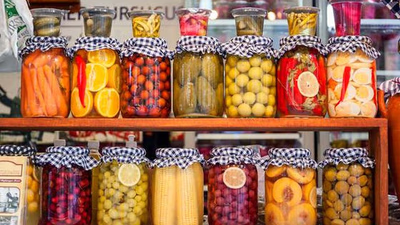
The global market for pickles is thriving, with West Asia and the Middle East emerging as significant players in its trade. Pickles, a staple in regional cuisines, are increasingly in demand due to their versatility, long shelf life, and the growing interest in international food products. The West Asian pickle market, in particular, presents lucrative export opportunities, as the region is both a major producer and consumer of various types of pickles, including cucumber, olive, and mixed vegetable varieties. B2B marketplaces in Asia, such as Aritral, are revolutionizing the pickle trade by connecting verified exporters and importers with streamlined supply chain solutions. These platforms facilitate direct communication, regional product listings, and AI-powered marketing, enabling businesses to tap into growing demand in the Middle East and beyond. Additionally, market insights into trade dynamics reveal that pickles pair well with other high-growth commodities such as spices, snacks, and groceries, all of which are integral to the Middle Eastern and West Asian culinary landscape. Exporting pickles to the Middle East and Asia requires a robust understanding of regional tastes, packaging standards, and trade regulations. Verified suppliers on B2B platforms can ensure compliance, while supply chain solutions help address logistical challenges, such as temperature control and storage.
Moreover, the pickle market benefits from cross-category promotion alongside complementary goods like tea, coffee, nuts, and bread, which are already thriving in the region. For businesses considering entry into the pickle trade, foreign marketing training and leveraging B2B platforms can provide the necessary tools to succeed. With the Middle East and West Asia’s growing population and increasing demand for diverse food products, pickles are poised as a valuable export commodity. Aritral, with its AI-driven services, supports businesses by simplifying the complexities of international trade and ensuring market readiness.
-
Unlock Snack Trade Potential in the Middle East & West Asia

The snack trade in the Middle East and West Asia represents a dynamic and diversified market driven by changing consumer tastes and robust import-export networks. From nuts, jams, and honey to packaged snacks and dairy-based treats, the region’s growing demand for convenient and quality food items presents lucrative opportunities for exporters and suppliers. Verified importers and exporters on B2B marketplaces in Asia are facilitating smooth transactions, leveraging AI-driven tools for market insights and supply chain optimization. In the tea and coffee segment, Middle Eastern consumers are fueling demand for premium and specialty blends, with West Asia emerging as a hub for trade. Spices, such as saffron, cinnamon, and cardamom, are similarly integral to the region’s cuisine and trade, with suppliers focusing on quality and authenticity to meet market needs. The grocery sector, including dried fruits and canned foods, is witnessing steady growth as urbanization and e-commerce expand purchasing channels. The meat trade, encompassing a variety of sources including poultry, seafood, and halal-certified products, is a key driver of international commodity trade in the region. Similarly, nuts—particularly almonds, pistachios, and walnuts—are highly sought-after for both direct consumption and as ingredients in pastries and confectionery.
For businesses keen to tap into this thriving market, platforms like Aritral simplify the process with features like regional product listings and direct communication tools. Such platforms connect suppliers with buyers across West Asia, offering access to verified partners and streamlined logistics solutions. By capitalizing on the demand for snacks, beverages, and staple ingredients, businesses can unlock significant growth potential in this vibrant region.
-
Unlocking Spice Trade Opportunities in West Asia and Middle East

The spice trade has long been a cornerstone of commerce in the Middle East and West Asia, regions that serve as pivotal hubs for global agricultural and culinary exports. Saffron, pepper, cinnamon, cumin, ginger, thyme, and cardamom are among the highly sought-after commodities, with their export and import activities forming a significant part of the regional economy. Verified exporters and importers rely heavily on B2B marketplaces in Asia to streamline transactions, enhance visibility, and build trust. These platforms also provide market insights, regional product listings, and supply chain solutions that facilitate smoother trade operations. The Middle Eastern spice market is deeply intertwined with other food categories such as tea, coffee, snacks, and groceries. For instance, tea and coffee trade in the Middle East is witnessing steady growth, driven by increasing consumer demand for diverse flavors and premium products. B2B trade platforms play a pivotal role in connecting buyers and sellers, offering marketing tools, and enabling cross-border transactions. Similarly, the snack market—spanning nuts, pickles, bread, and dairy—is gaining traction, creating opportunities for exporters to tap into evolving consumer preferences.
Additionally, the region"s international grocery trade, encompassing dried fruits, canned food, jam, honey, and herbal distillates, continues to grow. Leveraging insights from commodity trade and buyer trends in Middle East markets can help businesses optimize their strategies. With proper export training for spices like cinnamon and cumin, and tailored marketing for premium products such as saffron and thyme, businesses can unlock significant revenue potential. Platforms like Aritral simplify international transactions by offering services like AI-powered marketing, global sales assistance, and direct communication tools. By aggregating regional data and facilitating direct negotiations, they amplify market reach for exporters and importers alike. "
-
Researching the consumption of nuts and snacks market in the Middle East countries

The nuts and snacks market in the Middle East and West Asia is characterized by a rich diversity of products, including pistachios, almonds, and hazelnuts. These items are integral to local culture, consumed daily and during social gatherings. Countries like Iran, Turkey, and Saudi Arabia play significant roles in production and exportation, highlighting the economic importance of this sector. Understanding local consumption habits is crucial for effective marketing strategies. Factors such as product quality, pricing, packaging, and innovation are essential for manufacturers to differentiate themselves in a competitive market. Additionally, demographic shifts are influencing consumer preferences towards healthier options and diverse product offerings. Economic conditions also impact pricing strategies, making it vital for producers to adapt to changing market dynamics. The Middle East serves as a key export market for nuts and snacks; thus, understanding customer needs in these markets can enhance manufacturers" competitiveness.
Overall, insights into local habits, competitor analysis, and economic factors are critical for developing successful business strategies in this industry. "
-
Guide to exporting and marketing nuts and snacks in global markets

Marketing and exporting nuts and snacks globally requires strategic planning, market understanding, and effective execution. Key factors for success include establishing a strong brand presence, ensuring product quality, and adhering to international trade regulations. Companies must navigate complex import/export laws, competitive pricing, and local consumer preferences while maintaining robust supply chains. Conducting thorough market research is essential to identify target markets with high demand and growth potential. Attractive packaging and branding can differentiate products in competitive landscapes. Building relationships with local distributors enhances market access and facilitates distribution. Utilizing digital marketing strategies, such as social media and online advertising, can expand reach to international customers. Continuous evaluation of performance, customer feedback, and market trends is crucial for adapting strategies over time.
Additionally, understanding cultural nuances and communication styles is vital for successful negotiations in foreign markets. Companies should also be aware of logistical challenges related to shipping and customs processes that may impact export success.
-
The main players in the supply market of nuts and snacks among West Asian countries

The nuts and snacks supply market in West Asia is dominated by key players such as Saudi Arabia, Iran, Turkey, and the UAE. These countries leverage their rich natural resources, including fertile soil and favorable climates, to produce high-quality products. Collaborations between large companies and local manufacturers enhance production capabilities and create opportunities for local producers. Successful exporters like China, India, Germany, the USA, Russia, and Brazil also play significant roles in supplying the Middle East. These nations have developed expertise in manufacturing and processing techniques while investing in infrastructure to support efficient export operations. The competitive landscape requires local producers to focus on product quality, variety, effective marketing strategies, and continuous improvements to thrive against larger international competitors. The diverse offerings from these countries cater to various market demands while maintaining competitive pricing. As a result, the Middle East has become a vital hub for nuts and snacks trade.
-
Nuts and snacks suitable for export and international trade

Nuts and snacks represent a significant segment of international trade, with their export value rising due to increasing global demand. Key exporters include Iran, the USA, Turkey, Vietnam, Spain, and India. Factors influencing trade include supply and demand dynamics, cultural preferences, regulatory compliance, and competition. High-demand products like almonds, pistachios, walnuts, and cashews are noted for their nutritional benefits and popularity in various markets. The industry encompasses a wide range of products including chips, biscuits, dried fruits, and puffs. The growing awareness of health benefits associated with nuts has further fueled demand. Exporters must adhere to local and international regulations regarding hygiene standards and packaging while ensuring consistent supply capabilities to meet foreign orders. Understanding consumer preferences in target markets is crucial for success in this competitive landscape.


























